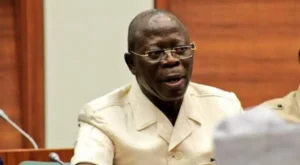President Bola Tinubu has written to Nigeria’s House of Representatives to ask for approval to borrow a large amount of money. This borrowing includes money from outside the country in dollars and euros, as well as local borrowing in naira.
On Tuesday, Speaker Abbas Tajudeen read letters from the president asking lawmakers to approve three main financial plans. These include Nigeria’s external borrowing plan for 2025–2026, a $2 billion bond sale in the local market, and bonds to pay off unpaid pension debts.
The president said this borrowing plan follows an Executive Order he signed in October 2023. He explained that the money will be used to improve important parts of the economy like building roads and other infrastructure, creating jobs, and increasing foreign exchange earnings. This strategy will also help stabilize the naira and grow Nigeria’s financial markets.
“This request is pursuant to the provisions of Section 44 (1) and (2) of the Fiscal Responsibility Act 2007 and Section 1(7) of the Executive Order, which requires National Assembly approval for all new borrowings and appropriation of the proceeds,” the president wrote.
President Tinubu admitted that borrowing this money will increase Nigeria’s total public debt and the cost of repaying it.
In a detailed plan, Tinubu showed that Nigeria intends to borrow $21.5 billion, €2.2 billion, 15 billion Japanese yen, and receive €65 million in grants during 2025–2026. The money will be used for projects in infrastructure, agriculture, health, education, water supply, security, and job creation. Most projects will be carried out across all 36 states and the Federal Capital Territory.
“These projects were selected based on technical and economic evaluations and are geared toward addressing the country’s infrastructure deficit, reducing poverty, creating jobs, and boosting food security,” the president stated.
The president also noted that removing fuel subsidies and falling government revenues mean Nigeria needs to borrow carefully from abroad. The funds will focus on key areas such as power, railways, and healthcare.
Additionally, President Tinubu asked lawmakers to approve selling government bonds worth about 758 billion naira to pay off unpaid pension debts under the Contributory Pension Scheme as of December 31, 2023.
“This bond issuance will enable the federal government to meet its obligations to retirees, restore confidence in the pension system, and improve the welfare of retired public servants,” Tinubu wrote.
He explained that the government has struggled to follow some rules of the Pension Reform Act because of financial problems. Paying these pension debts will help the economy by increasing money flow and boosting the morale of public workers. This plan was approved by the Federal Executive Council in February 2025.
All these borrowing requests have been sent to the House Committee on Finance for review and further action.







